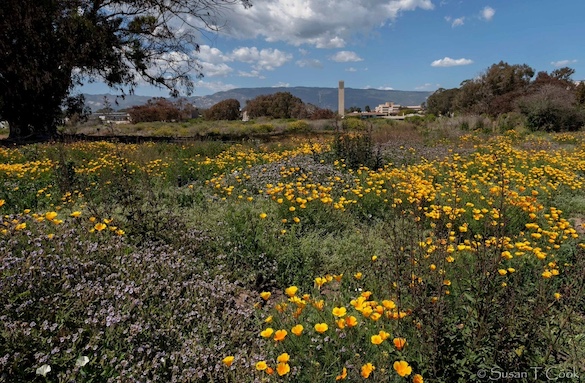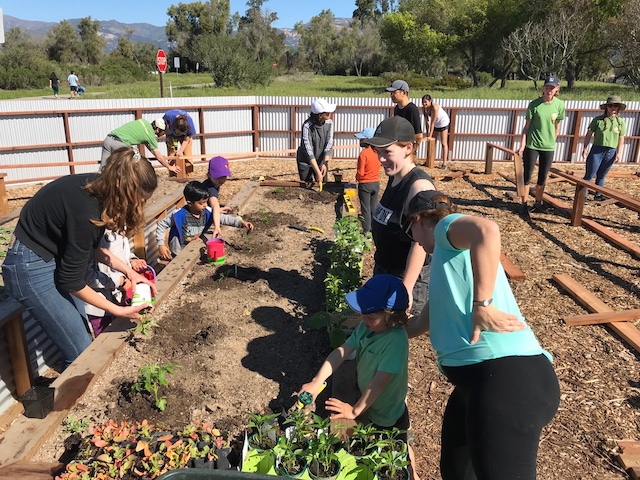UCSB Sustainability seeks opportunities to partner with the local community, think regionally, and support community service. Our department encourages our students to volunteer with the local community, participates in regional committees related to sustainability, and is always excited to explore new partnerships. In order to successfully support our watershed and ecosystem, we recognize that regional collaborations are essential.

Santa Barbara County Regional Climate Collaborative
UCSB is a founding member of the Santa Barbara County Regional Climate Collaborative (SBCRCC), which sprang out of a session called The Power of Regional Collaboration at the last Central Coast Sustainability Summit (fall of 2019) hosted by UCSB in partnership with many of the current members of the SBCRCC.

Edible Campus Program
The Edible Campus Program (ECP) provides student internship support and internship management to the University United Methodist Community Garden, the St. Michael's Community Garden, and the Isla Vista Community Center Community Garden. Funding for these programs is supported in part by the Johnson Ohana Foundation and the Isla Vista Community Services District as well as other donors. In 2024, we co-launched the We Are Isla Vista; Community Care Project.

Central Coast Sustainability Summit
Annually, UCSB hosts a local summit, the Central Coast Sustainability Summit, where local governmental staff, elected officials, citizens, business leaders, regional schools, and non-profit organizations come together to share ideas and best practices; and strategize how we can better partner regionally. UCSB partners with the Cities of Santa Barbara, Goleta, and Carpinteria, the County of Santa Barbara, and the Community Environmental Council to host the annual Summit.